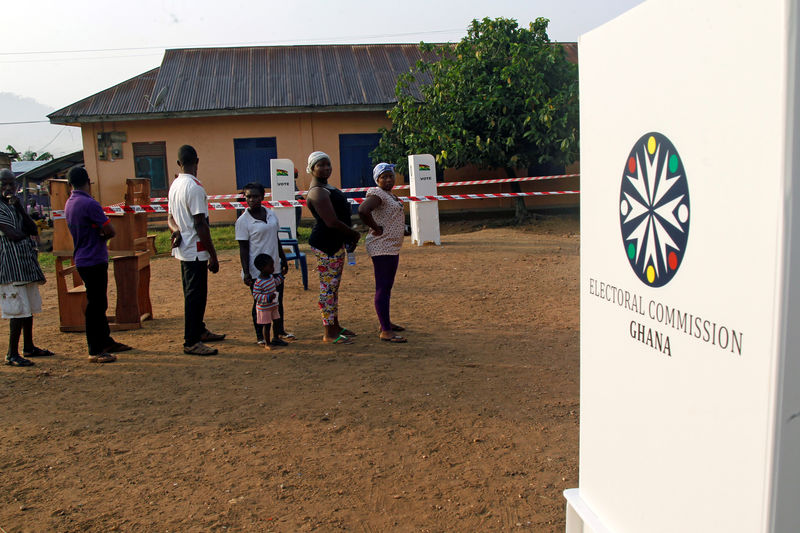By Kwasi Kpodo
ACCRA (Reuters) - Long queues formed at voting stations in Ghana on Wednesday as President John Mahama ran for a second and final term against a backdrop of an economy that has slowed sharply since he took power.
There have been few opinion polls but most political analysts say the vote could be close, with a strong challenge from opposition leader and former foreign minister Nana Akufo-Addo.
Ghana is held up a beacon of democracy in West Africa with a track record of peaceful elections. Twice since 2000 voters have rejected the government of the day.
Some voters queued overnight to cast their ballots in a show of enthusiasm for a hotly-contested vote.
"I needed to register the strong feeling I have about this country with my thumb and the least I could do was to sacrifice sleep," said Comfort Laryea, 78, who waited to vote since 4 a.m. (0400 GMT) in the Teshie suburb of the capital. She declined to say who she would vote for.
For years, Ghana had one of Africa's most dynamic economies but it hit the buffers in 2014 due to lower global prices for its gold, oil and cocoa exports and a fiscal crisis that featured a spike in the budget deficit and elevated inflation.
The currency also halved in value since 2014, though it has largely stabilized this year. The government is mid-way through a $918 million International Monetary Fund programme to restore economic stability.
The ruling National Democratic Congress argues that, despite the difficulties, Ghana is poised for a return to growth above 8 percent and it has improved roads, schools and hospitals.
The opposition New Patriotic Party says the government has mismanaged the economy and squandered the country's resources causing hardship and a rise in unemployment.
Security forces have deployed in strength and political parties who have sent thousands of agents to the country's 29,000 polling stations to spot any irregularities.
The opposition challenged the 2012 election result leading to an eight-month Supreme Court case most said reinforced the country's democracy.
The opposition says it has little faith in the electoral commission and its first-time commissioner Charlotte Osei.

There are 15.7 million registered voters in the country of 26 million and 275 parliamentary seats are also being contested. Five other candidates are also contesting the presidency, though they are considered to have little chance of victory.